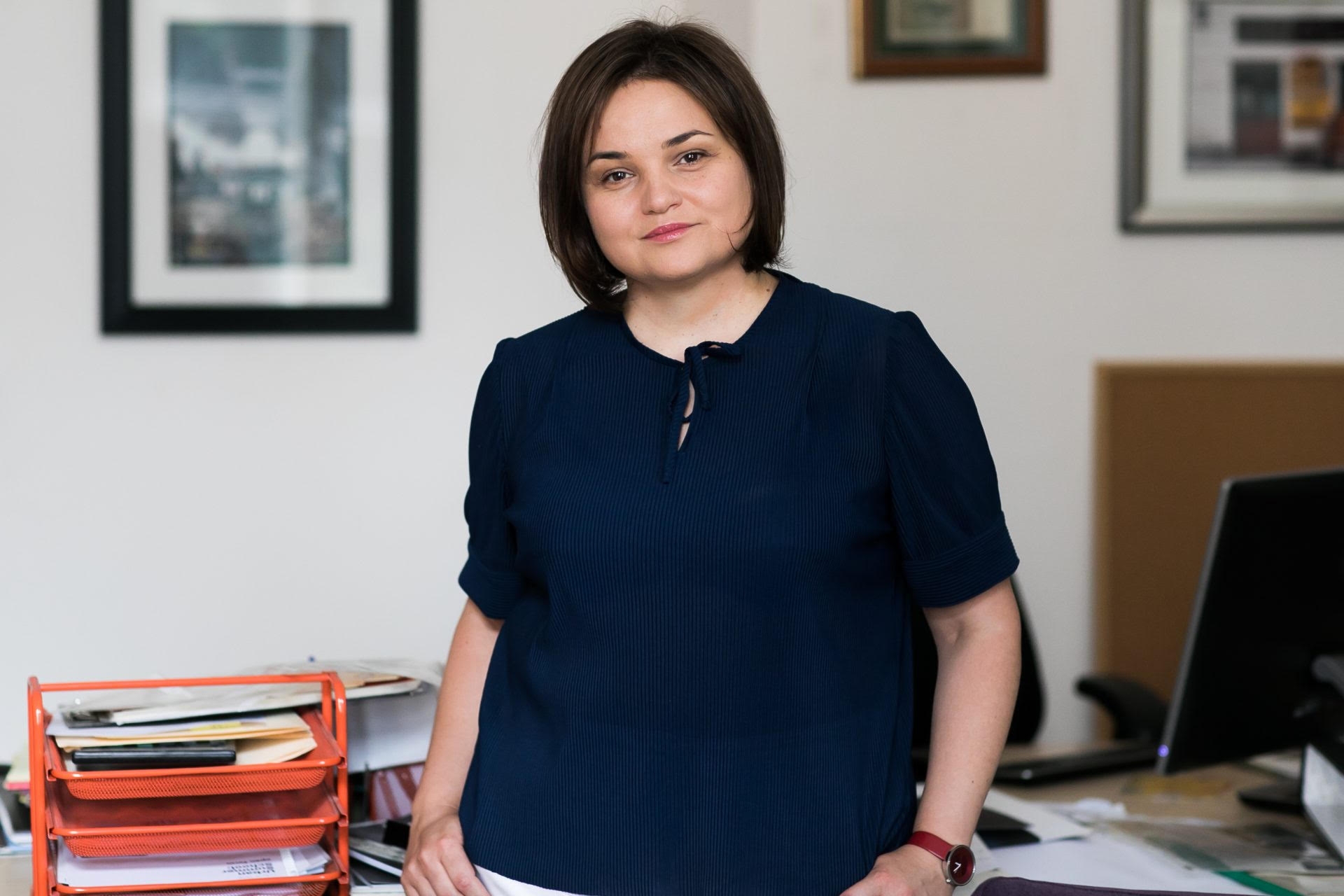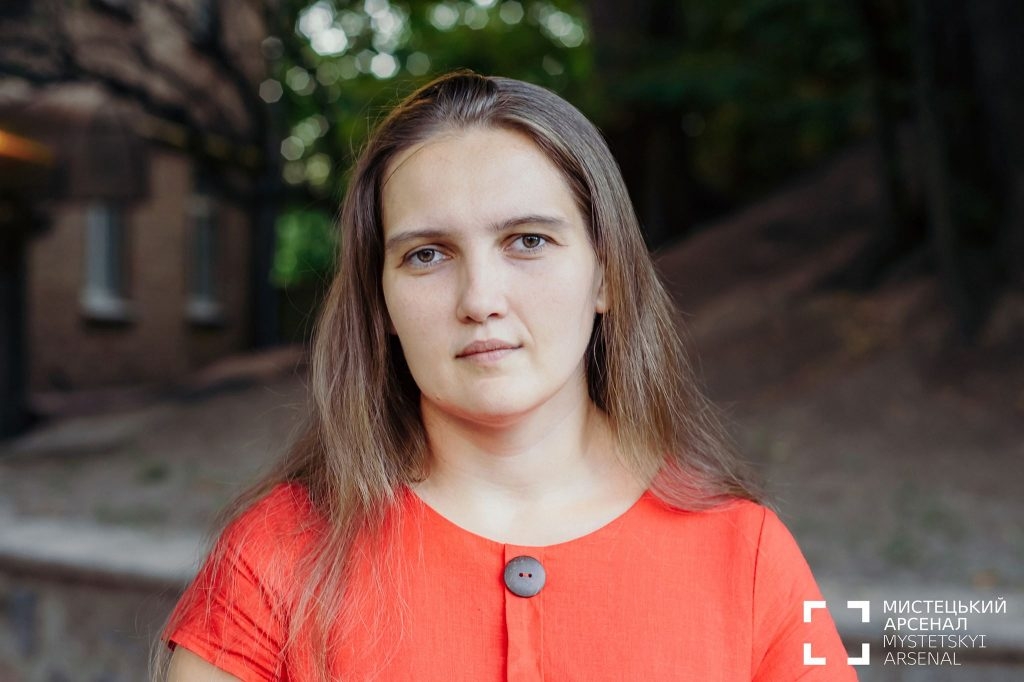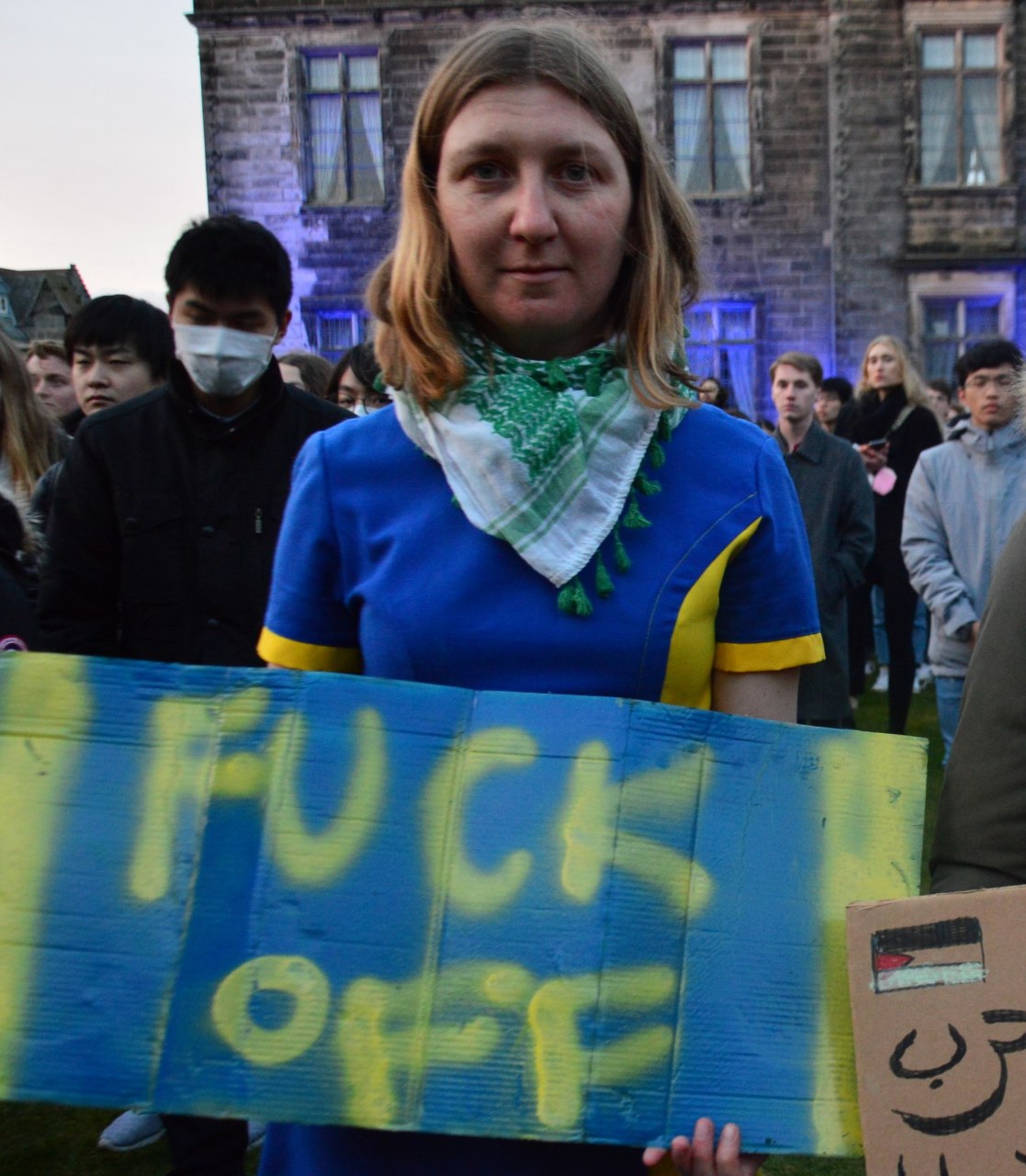Anyone who has lived or worked in Ukraine will know that the country is managed by smart, fearless women. From erudite archivists to formidable art activists, Ukraine’s women are the driving force behind the country’s cultural economy. This is far from a new development. Ukraine has a rich history of feminist thought and activism that runs across its regions and social classes. The Union of Ukrainian Women (Soyuz Ukrayinok), in Western Ukraine, was among the largest feminist organisations in Europe in the interwar decades., And the southeastern city of Kharkiv boasts Ukraine’s first Museum of Gender, a platform for empowering women and youth.
On February 24, 2022, the Russian government launched a full-scale invasion of Ukraine. With this atrocious act of violence, and the humanitarian catastrophe that has resulted, there is a need for direct action rather than ineffectual words. The women artists, researchers, and community founders whom we count among our friends and colleagues have risen to the challenge. On March 8th, International Women’s Day, we express our solidarity with all Ukrainian women, and share stories of some who are an inspiration to us:
Victoria: Masha Pronina is busy but not in a normal “I’m stuck in meetings all day” kind of way. She is working 24/7 to recruit mobile brigades of art therapists to support traumatized children. When I first met her in the southern port city of Mariupol in 2021, I was impressed by her intense professionalism and fearless commitment to her work. At the Platforma Tyu arts centre, Masha led art clusters for teenagers from marginal groups, including LGBT teenagers who “couldn’t find a place in their patriarchal community.” When Russia began to bomb Mariupol in February, Masha and other members of her team made the difficult decision to relocate their operation to the western city of Lviv where displaced children were pouring into the city. Working from the city’s basements, she is now launching a project that will help the youngest victims of Putin’s war. This is intensely difficult work, work that takes its toll on your body and mental health: “I feel like I’m in a dark forest and I can’t see anything,” she explains, “but I still have to walk through it for another kilometer.”
Diána: Not far from Masha, Sofia Dyak is at work too. In less than a decade Sofia has transformed the Center for Urban History in Lviv from a small academic institution into a hub of socially engaged research. Her work requires empathy, professional integrity, and a good dose of humour. When I came to Lviv in January 2022, I was drenched in anxiety, having spent the preceding months in Kyiv, where the escalating tensions had kept us on an emotional rollercoaster. As she spoke about her work, I was overtaken by Sofia’s calm. Lviv is coping with an influx of displaced people, and the center has organised itself to support them, coordinating shelter, evacuations and helping with border crossing. On top of this, they have taken on the task of documenting the war, gathering people’s testimonies into an archive-in-the-making, so that at some point in the future, there will be a chance to know what happened during these dark days.
Victoria: Anna Bahachenko is a senior archivist at the Local History Museum and was my guide when I visited Mariupol in 2021. While the Russian army has been continuously shelling Mariupol, Anna has been at work digitising materials from the museum’s collections. Heritage practitioners in the Ukrainian East are well aware of the threat war poses not only to human lives, but also to the cultural fabric of society, architectural and material heritage. The Donetsk Local History Museum lost the entirety of its archival collection when it was displaced to Kramatorsk during the 2014 war. Anna is clearly intent on not letting the same thing happen to the collections at her museum. One rarely thinks of heritage practitioners as front-line workers, but their efforts may preserve a historical record that may otherwise perish through indiscriminate shelling and bombing. Anna is just one in an army of women striving right now to protect the country’s cultural legacy from destruction.
Diána: In Kyiv, Lyuba Yakimchuk remains intent on staying put and facing the coming destruction. Lyuba plays dangerous games with words. She writes poetry that powerfully captures a world falling apart and the ways language deceives us into thinking we have the tools to capture the world. Lyuba knows all too well how untrue this is: a native of Pervomaisk in the Luhansk region, her family was displaced by the war that split Donbas in 2014. I began translating Lyuba’s poetry a few years later: through her love of rhythm and wordplay I encountered a cheeky, smart and experimental Ukrainian language I had never read before. Lyuba and her husband remain in Kyiv. They’ve undertaken military training, got a generator, and bought supplies. She has been posting kind, practical tips for mental health support. I admire her sharp, brave voice, her gentleness and playfulness. We have been in touch intermittently over the years, but never met in person. She was planning to come to St. Andrews this spring. I look forward to meeting her when this madness ends. Her collection, Apricots of Donbas, translated by Oksana Maksymchuk and Max Rosochinsky, has just been published in English.
Victoria: Outside of Ukraine, women are gathering to take up their share of lobbying, fundraising, and protesting. As researcher Darya Tsymbalyuk delivered her eloquent address at the Ukraine vigil in St Andrews, a senior colleague leaned in and whispered in my ear “I want to be her when I grow up.” I feel the same: Darya’s leadership takes the form of a fearless ability to speak truth to power combined with a profound ethical consciousness that sets her apart from the crowd. While offering powerful personal testimony at the vigil, speaking about her father fighting on the outskirts of Kyiv and her mother sheltering in the metro, she was also careful to point out instances of racism at the borders and the other wars and humanitarian disasters that continue to rage on while the world’s attention is on Ukraine. As I write this, the Russian military has just entered her hometown of Mykolaiv. Darya (alongside other Ukrainians abroad) is fighting just as fiercely as the Ukrainian army to defend her country.
If you would like to support the charities that these women are campaigning for and for which they are working, please consider donating to the following sources:
https://crscees.wp.st-andrews.ac.uk/donating-to-charity/
Edited by Katie Zazenski
Victoria Donovan is a Senior Lecturer in Russian and the Director of the Centre for Russian, Soviet, Central, and East European Studies. She is currently an AHRC Leadership Fellow on the project Donbas in Focus: Visions of Industry in the Ukrainian East. She is the co-editor with Iryna Sklokina of the special issue “Donbas Imaginaries: Heritage, Culture, Communities” and co-author with Darya Tsymbalyuk of Limits of Collaboration: Art, Ethics, and Donbas, forthcoming in 2022. She is a former British Academy Rising Star Engagement Award Holder and a BBC/AHRC New Generation Thinker.
Diána Vonnák is based at the University of St Andrews. A social anthropologist by training, she is currently Postdoctoral Research Fellow on the project Donbas in Focus: Visions of Industry in the Ukrainian East. She has done research in Ukraine, focusing on cultural heritage professionals and memory politics at war since 2014. Previously she was an associate lecturer at UCL. Diána is a published author in her native Hungarian, and her words have been published at the TLS, the Los Angeler Review of Books, The Calvert Journal and The Conversation, among others.
Imprint
| Index | Anna Bahachenko Center for Urban History Lviv Darya Tsymbalyuk Diána Vonnák Donetsk Local History Museum Lyuba Yakimchuk Masha Pronina Platforma Tyu Sofia Dyak Victoria Donovan |





